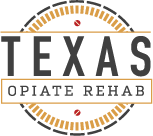
Signs of Opiate Addiction
Opiates are common in most prescription painkillers. They affect pain receptors in the brain allowing the user’s body to quickly build tolerance. This means that over time each dose becomes less and less effective. For those taking Vicodin and other opiates long-term, more and more medication is needed, which often leads to dependence. Signs of opiate addiction may include.
- Mood swings, especially sudden shifts from elation into hostile behavior.
- Feeling or acting intoxicated or more energetic than usual.
- Increased drinking. Alcohol increases the effects of opiates on the brain, so those who have built up a tolerance often drink more to increase the drug’s effects.
- Reduced appetite and changes in sleep. Some eat more and sleep more on opiates, while others eat and sleep far less than normal.
- Running out of prescriptions too quickly and other drug-seeking behavior is common and can come on quickly with the use of opiates.
Opiate addiction causes behavioral changes like any other addiction. Lying, manipulation, money problems, and strange changes in behavior can all signal trouble with opiate dependency. When confronted, those using opiates may deny a problem or blame someone else. This is normal.
Finding Opiate Addiction Rehab
Programs, facilities and support systems across the state can support you or a loved one struggling with opiate addiction. Some of the best programs begin with detox. When looking for programs and support, begin with the local government’s online resources or recommendations from trusted doctors or therapists. If you suspect someone needs help immediately, call your doctor or emergency services. Don’t wait for a spot in a residential facility to open up. Places like Serenity House Detox Center in Houston can offer medically assisted detox and rehabilitation close to home.
Opiate detox is always safer in a medically assisted facility. While it doesn’t take very long for the drugs to leave your system, detoxing at home can lead to relapse, overdose, or other substance abuse. Addiction rehab can also provide the therapy and community you or your loved one needs to fully recover and address the root causes of addiction. For many, an inpatient program offers all of this and even more, preparing people for different recovery steps, introducing them to a new community of sober living, and repairing family relationships impacted by addiction.
Start the Road to Recovery With Local Addiction Rehab
If you or someone in your life is dealing with opiate dependency, don’t be ashamed. Opiate drugs are formulated to replace natural chemicals in the brain to achieve unnatural effects. If you or someone in your life is trying to detox from opiates, today is the day to ask for help. Facilities like Serenity House Detox Center can help with safe detox and effective rehab programs to prevent relapse and focus on resident’s overall health. Never trust a website or facility that promises to cure addiction in a single visit. The road to recovery is long but always worth it.
